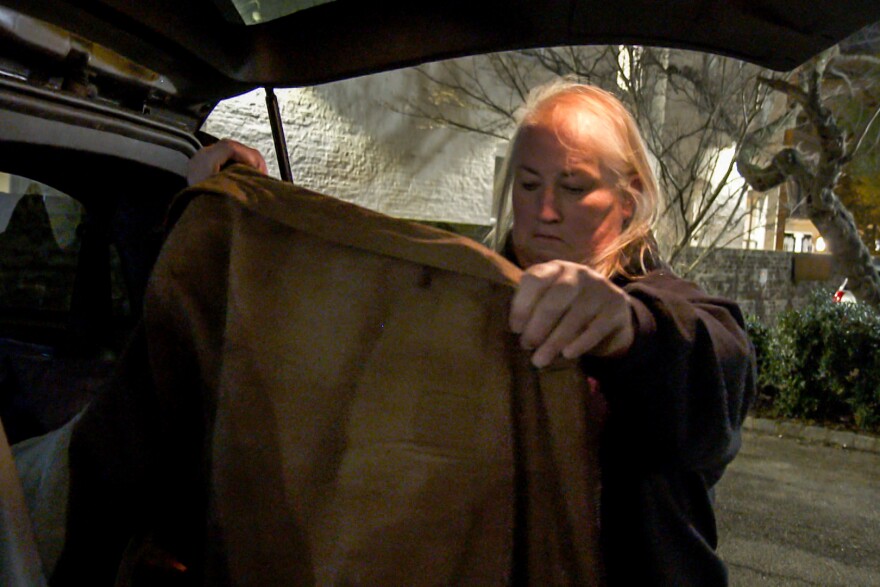About 20 percent of Richmond residents face costs associated with poverty, according to U.S. Census data from 2023.
Those costs can extend beyond financial hardship and affect mental health. Research stretching back to the 1960s shows that trying to survive on income below the poverty level can result in stress, anxiety and social isolation.
Blessing Warriors RVA is a nonprofit dedicated to helping address the needs of Richmond’s unhoused population. Each day, the organization provides people with meals and essential items.
Chief Operating Officer Tracy Byrd-Eagles said it’s sometimes hard to tell who’s dealing with poverty and financial issues.
“Our mission is to meet people where they are. You never know how somebody ended up on the street — and we don't judge, we don't criticize. Our goal is to motivate you to find a way up and out of where you are,” said Byrd-Eagles.
The nonprofit is largely run by volunteers and donations. Blessing Warriors RVA draws some of those volunteers from its 8,000 Facebook followers, who donate their time to make soups, hard boiled eggs, sandwiches and more to feed the community.
“[The Facebook group is] God's tool for us. No matter what the need is, it gets met, it gets met by someone in the community,” Byrd-Eagles said.
Addressing poverty isn’t just about providing financial assistance, it’s also about easing stress.

“You know, it's tough on mental health, when you start out on the street. And whether that start out on the street [is] an eviction and you go to a hotel room, and from a hotel room, you end up on the street, whether you're on the street, from the beginning, your soul takes a hit,” Byrd-Eagles said.
Kimberly Myris and her fiancé Johnathan know what it’s like. Last year, when they were expecting their first child together, they were living in a tent north of the city’s core. That’s how Myris connected with Blessing Warriors.
“So, [the nonprofit] brought us blankets to sleep on. We were literally sleeping on a pallet,” Myris said. “They brought us blankets, they [brought] us food.”
Myris said that many people and organizations that she knows of might reach out to the community once a month or every two months, but Blessing Warriors do what they do every day.
“I have to make it into something positive, because the more I worry about something, the worse it gets,” Myris said about the emotional toll of being unhoused. “So, it's been very stressful. I have to use the resources I can and just keep the faith that something's going to come through.”
Myris, who works at an area Burger King, said she tries to stay positive while juggling the pressures of poverty and the responsibilities of parenthood. Currently, she and her family are staying at a shelter outside of Richmond.
“We aren't the people who stand on the corner, we aren't the people who just sit around and be like, ‘Hey, man, you got it?’ We don't,” Myris said. “We still go to work. You know, we earn our money, what we have — we don't earn a lot. So, we need help.”
Health Brigade, formerly the Fan Free Clinic, is another organization helping the city’s unhoused population. The group, founded in 1970, provides primary care, mental health and wellness, health outreach and advocacy services — as well as offering transgender healthcare to low-income individuals.
Jenee Johnson, Health Brigade’s social work manager, said the price of poverty isn’t always monetary. People are sometimes forced to compromise on their quality of life.
“Folks who are living in poverty are in this cyclical experience where not having food, not having childcare, not having health care, not having all of our basic needs met, causes prolonged stress,” Johnson said before explaining how that can manifest physically. “So, high blood pressure, heart attack, stroke, digestive issues. And then on the mental health side of things, we start to get into worry and sadness.”
At Health Brigade — which accepts Medicaid — individuals can receive access to services that help with chronic disease prevention. Patients also can see specialists and receive diagnostic testing at no charge.



